Leaving a Job with a 401(K)
When you leave a job with a 401(k), you’ll generally have four options for what to do with the money. Each has its own benefits and drawbacks, so deciding what’s right for you will depend on your situation and preferences.
Leave the Money in Your Old Account
If you have more than $5,000 in your 401(k), you may be given the option to leave your funds in the account with your old employer. If you have less than that, you’ll likely need to move the money or you’ll be given a check.
Leaving your funds with your old employer is probably the option that will require the least action from you, but that doesn’t mean it’s necessarily the best. If you choose this option, that means that you’ll likely have multiple accounts that you need to track and check in on. Similarly, you may miss out on better investment options.
Rollover The Money to Another Account
There are two ways you can move your money into another account. The first is a direct rollover, and it’s the easiest option. A direct rollover means that the money from your old account will automatically be transferred to your new account. In order to get a direct rollover, you’ll need to talk to your new and old account administrators. They’ll give you some paperwork to fill out and it will usually be done automatically without any cost or additional action from you.
The second and more complicated option is an indirect rollover. With this move, you essentially withdraw the money and then deposit it yourself into the new account. But the deposit must be made within 60 days if you want to avoid the consequences of taking a distribution. Plus, your former administrator will usually have to withhold 20% of your money for taxes—but you will still need to deposit the full amount into the new account if you want to avoid penalties. This means you’ll have to make up the difference. If you don’t, you’ll have to pay taxes and a 10% fee for an early withdrawal if you’re under 59 1/2 for whatever you don’t deposit. The remaining 20% that was withheld will come back to you as a tax credit.
If you decide to move your money into a different account, there are basically two places you can move it to.
Rollover Option 1: Move the Money to a New Employer’s Plan
Most companies will allow you to roll an old 401(k) into the new one. So, if you're switching jobs and your new employer offers a 401(k) plan, this is something to consider—especially if the investment options in the new 401(k) are better than your old one and if you want to keep all of your money together in one place.
Rollover Option 2: Move the Money to an IRA
You can also move the money into an IRA (Individual Retirement Account). You can do this whether or not you're employed—you'll own the account, not an employer. That being said, you should be aware that the yearly contribution limits for an IRA are significantly lower than a 401(k), so you may not be able to save up as much money. Similarly, if you’re moving from a traditional 401(k) to a Roth IRA, you’ll need to pay taxes on the money when you deposit it, meaning you’ll deposit less.
Withdraw the Money
Finally, you have the option to withdraw the money and not re-invest it in a retirement account. If you choose this, you’ll face a few consequences. You’ll need to pay taxes on the money you withdraw and if you’re under 59 ½, you’ll also need to pay a 10% early withdrawal penalty. This will also impact your financial security for retirement.
Carefully consider all of your options and which will be best for your situation before making a decision about what to do with an old 401(k) fund. And the sooner the better as you may only have a 60-day window to make changes.
This article has been republished with permission. View the original article: Leaving a Job with a 401(K).




Post your comment
Comments
No one has commented on this page yet.
RSS feed for comments on this page | RSS feed for all comments